What is Research?
Research is a systematic and organized process of gathering, analyzing, interpreting, and evaluating information to answer questions, solve problems, or explore new topics. It is a critical component of the scientific method and is used in various fields such as science, social science, humanities, and business.
Types of Research
There are two main types of research:
- Basic Research: This type of research focuses on expanding knowledge and understanding fundamental principles without specific applications in mind.
- Applied Research: Applied research aims to solve specific problems or address practical questions. It is often used in industry, technology, and policy-making.
The Research Process
The research process typically involves the following key steps:
- Identifying the Research Question: Formulating a clear and specific question or problem to be addressed.
- Reviewing Existing Literature: Conducting a thorough review of relevant literature and existing research to build on prior knowledge.
- Designing the Study: Planning the methodology, data collection techniques, and analysis methods to address the research question.
- Collecting Data: Gathering relevant data through experiments, surveys, interviews, observations, or other means.
- Analyzing Data: Using statistical or qualitative analysis techniques to interpret the collected data and draw conclusions.
- Drawing Conclusions: Synthesizing the findings to address the research question and make recommendations if applicable.
- Communicating Results: Presenting the research findings through reports, presentations, or publications.
Skills Needed for Research
Successful research requires various skills, including:
- Critical Thinking: The ability to analyze information, evaluate evidence, and make logical conclusions.
- Problem-Solving: Finding innovative solutions to research questions or challenges encountered during the process.
- Communication: Effectively conveying research findings through writing, speaking, and visual representation.
- Data Analysis: Using statistical and qualitative analysis tools to interpret data accurately.
- Time Management: Planning and organizing tasks to meet research deadlines and goals.
Study Guide
Here are some study tips for mastering the concept of research:
- Understand the difference between basic and applied research and provide examples of each.
- Memorize and explain the key steps involved in the research process.
- Practice formulating research questions for different topics or scenarios.
- Review and analyze sample research studies to understand how data is collected and analyzed.
- Develop critical thinking skills through exercises that involve evaluating and synthesizing information.
- Explore the impact of research in various fields and discuss real-world applications of research findings.
By mastering the concept of research and understanding its applications, you will be better equipped to engage in scientific inquiry and contribute to the advancement of knowledge in your field.
[Research] Related Worksheets and Study Guides:
.◂Science Worksheets and Study Guides Third Grade. Changes in matter
Study Guide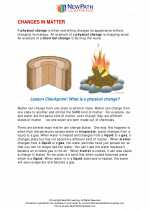 Changes in matter
Changes in matter  Worksheet/Answer key
Worksheet/Answer key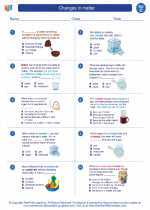 Changes in matter
Changes in matter  Worksheet/Answer key
Worksheet/Answer key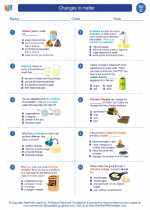 Changes in matter
Changes in matter  Worksheet/Answer key
Worksheet/Answer key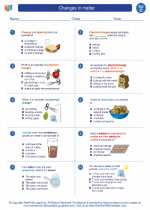 Changes in matter
Changes in matter  Vocabulary/Answer key
Vocabulary/Answer key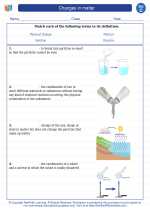 Changes in matter
Changes in matter 

 Worksheet/Answer key
Worksheet/Answer key
 Worksheet/Answer key
Worksheet/Answer key
 Worksheet/Answer key
Worksheet/Answer key
 Vocabulary/Answer key
Vocabulary/Answer key

The resources above cover the following skills:
Concepts of Physical Science: A student should understand and be able to apply the concepts, models, theories, universal principles, and facts that explain the physical world. A student who meets the content standard should:
Develop an understanding of the interactions between matter and energy, including physical, chemical, and nuclear changes, and the effects of these interactions on physical systems.